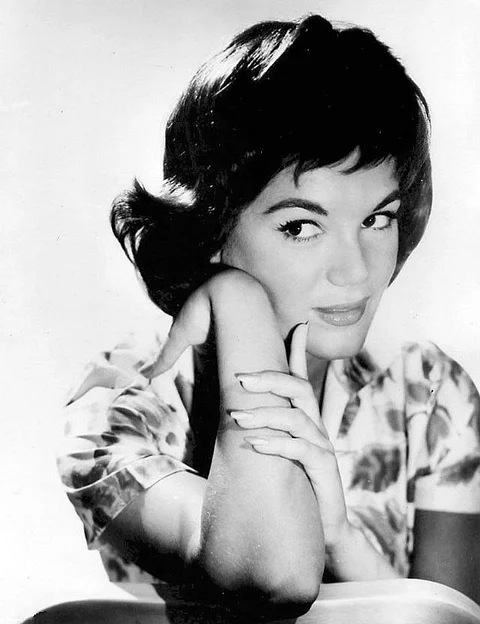
- NEWS
- the EDIT
- COMMENTARY
- BUSINESS
- LIFE
- SHOW
- ACTION
- GLOBAL GOALS
- SNAPS
- DYARYO TIRADA
- MORE

The world has lost one of its most iconic voices. On 16 July 2025, beloved pop singer and actress Connie Francis — born Concetta Rosa Maria Franconero — passed away at the age of 87. The news was confirmed by her close friend Ron Roberts, who shared:
“It is with a heavy heart and extreme sadness that I inform you of the passing of my dear friend Connie Francis last night. I know that Connie would approve that her fans are among the first to learn of this sad news.”
With over 200 million records sold worldwide, Connie Francis wasn’t just a singer — she was a cultural force, a trailblazer for women in the music industry, and a voice that captured the soul of a generation. She was the first woman in history to top the Billboard Hot 100, breaking barriers with her 1960 hit Everybody’s Somebody’s Fool, followed swiftly by My Heart Has a Mind of Its Own and Don’t Break the Heart That Loves You. Her name became synonymous with heartfelt ballads and emotional resonance, her voice instantly recognizable across continents and cultures.
Born on 12 December 1937, in Newark, New Jersey, to an Italian-American family, Connie was a prodigy nurtured by her father, George Franconero, who was deeply involved in managing her early career. Growing up in a multicultural neighborhood in Brooklyn and later in Belleville, New Jersey, she became fluent in Yiddish and Italian—an ability that would later allow her to sing in over a dozen languages, endearing her to fans around the globe.
At just 12 years old, she got her first taste of national exposure through Arthur Godfrey’s Talent Scouts, where she adopted the stage name Connie Francis. Godfrey famously told her to drop the accordion and stick to her voice — a decision that would prove pivotal. Her early appearances on NBC’s Startime Kids laid the foundation for a career that would span more than six decades.
Connie Francis soared to superstardom in the late 1950s and early 1960s, becoming the most successful female artist of her era in countries like Germany, Japan, Italy, Australia, and the United States. Her versatile recordings ranged from pop to country, traditional ballads to international hits. She brought her signature style to every performance—intimate, raw, and deeply emotional.
Despite the intense competition of the era, Francis carved out her own lane. She once recalled a moment in 1960 when she was about to record Are You Lonesome Tonight?, only to hear Elvis Presley’s version on the radio during her drive to the studio.
“Can you believe that?” she said in an interview. “I was literally on my way to the studio to record it.”
Her popularity was matched by her control and creativity. With a rare deal at MGM Records, Connie was given unprecedented freedom: she could choose her songs, arrange recordings anywhere in the world, and decline releases she didn’t believe in. It was a remarkable level of autonomy for any artist—especially a woman—in that era.
Francis’ success was also marked by personal trials. Her 1984 autobiography Who’s Sorry Now? revealed her struggles with mental health, trauma, and the heavy cost of fame. But through it all, she remained resilient — using her music as both a sanctuary and a platform to uplift others.
She continued to perform well into her later years, her voice maturing with time but never losing its emotional clarity. Fans, old and new, clung to the timeless magic of her songs — proof that true artistry never ages.
Connie Francis didn’t just sing the soundtrack of an era — she helped define it. She opened doors for future generations of women in the music industry and proved that talent, passion, and perseverance could take a girl from Newark to global stardom.
Even as the curtain falls on her extraordinary life, Connie Francis leaves behind a legacy that will continue to inspire. Her voice, preserved in vinyl and memory, remains a testament to the power of music to touch hearts, cross borders, and endure beyond time.
She was not just everybody’s somebody—she was everybody’s song.
Rest in peace, Connie Francis. Your music lives on.
